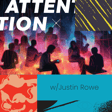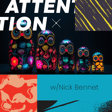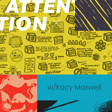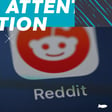
Growing an Audience By Betting on the Future With Ai
In this episode of the Attention Podcast, host Dan Sanchez interviews Andrew Bolis, a marketing AI expert. Andrew shares his journey of building a personal brand on LinkedIn after losing his job as a CMO, emphasizing engagement and networking as crucial elements. They discuss the impact of AI on marketing and content creation, highlighting the potential for automation tools like Descript and GPTs. Andrew demonstrates the practical application of Chat GPT for automating business processes, and they explore the future of custom GPTs and AI integration in podcast production. The conversation underscores the importance of AI education and the need for unique perspectives in the field.
Want to learn more about using Ai for marketing? Check out my other show at AiMicroskills.com.
Timestamps:
00:00 CEO guided me to LinkedIn success.
04:34 Engage with others to boost visibility and connections.
08:04 Building relationships through podcasts, connecting, and helping.
10:41 Promoting AI on social media led to success.
15:19 Automated browser extension documents and guides steps.
20:16 Recommendations for AI tools and systems.
22:38 Generate hundreds of names using ChatGPT.
27:52 Shared AI account at tech company causes limitations.
29:49 Increasing adoption of AI tools in business.
33:10 Copy Point AI automates writing processes efficiently.
35:32 Podcast audio automation and AI transcription enhancement.
38:23 Marketing will change with AI tools.
42:46 AI-generated content competes with human content.
45:07 Best place to connect is LinkedIn for AI.

















